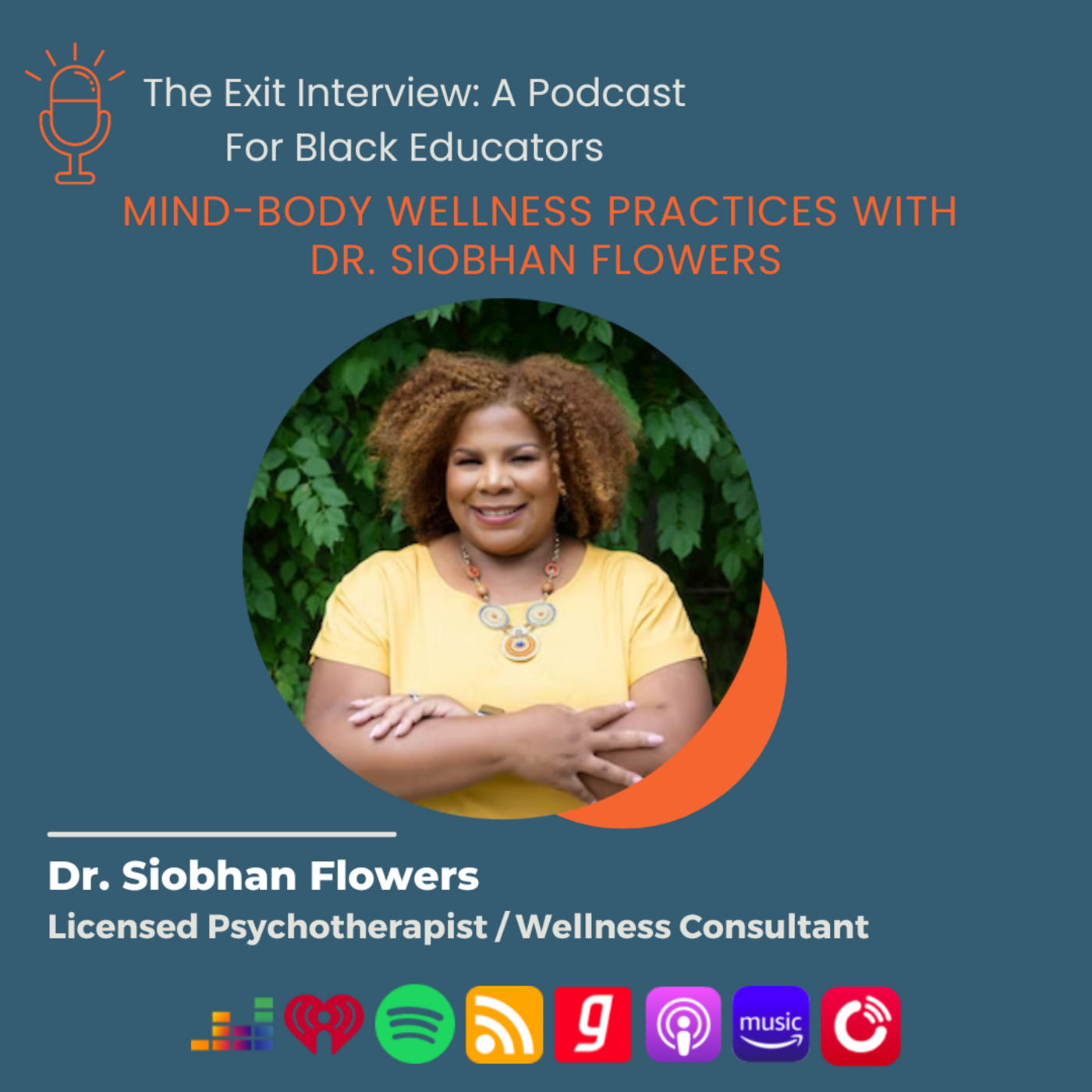The Mind-Body Connection: A Holistic Approach to Black Educator Wellness

Episode 29: Mind-Body Wellness Practices with Dr. Siobhan Flowers, so poignantly illustrated, the wellness of educators, particularly Black educators, is paramount to the health of our educational system and the well-being of our students. This blog post will delve deeper into the episode's key themes, exploring the vital connection between mind and body in fostering educator wellness.
The Black Educators' Wellness Epidemic
Black educators face unique and profound challenges that significantly contribute to their high rates of burnout, mental health issues, and job dissatisfaction. Systemic racism, cultural biases, and a pervasive lack of support create a work environment fraught with stress and adversity. This chronic exposure to racial microaggressions and discrimination leads to what is known as racial battle fatigue—a condition characterized by the cumulative emotional, psychological, and physical toll of navigating constant racial hostility.
The Mind-Body Connection
Understanding the mind-body connection is essential for addressing educator wellness. Our mental and physical health are deeply intertwined; when one is out of balance, the other is likely to be affected. For Black educators, the stress of racial battle fatigue can disrupt this balance, leading to adverse health outcomes such as anxiety, depression, hypertension, and other stress-related conditions. Therefore, fostering a harmonious mind-body connection is crucial for their overall well-being.
Mindfulness and Self-Regulation
Mindfulness and self-regulation are powerful tools for managing stress and enhancing mental health. Mindfulness involves paying attention to the present moment with non-judgmental awareness. Techniques such as deep breathing, meditation, and guided imagery can help educators manage stress and build resilience. These practices not only improve mental clarity and focus but also promote emotional stability, which is vital for coping with the daily stresses of teaching and the added burden of racial battle fatigue.
Physical Health and Black Educator Well-being
Physical health is a fundamental component of overall wellness. Regular exercise, healthy nutrition, and adequate sleep are vital for maintaining energy levels, reducing stress, and improving mood. Black educators, who are disproportionately affected by chronic illnesses, must prioritize their physical health to combat the effects of stress and ensure their long-term well-being. Physical activity, in particular, has been shown to reduce symptoms of anxiety and depression, which are often exacerbated by racial battle fatigue.
Practical Integration for Black Educators
To foster wellness, Black educators can integrate mind-body practices into their daily routines through:
- Scheduling Mindfulness and Self-Regulation Exercises: Setting aside time each day for mindfulness practices, such as meditation or deep breathing, can significantly reduce stress and enhance mental clarity.
- Engaging in Enjoyable Physical Activity: Finding physical activities that they enjoy, whether it's walking, yoga, dancing, or sports, can help maintain physical health and reduce stress.
- Prioritizing Healthy Nutrition and Sleep: Eating a balanced diet and getting adequate sleep are essential for maintaining physical and mental health.
- Seeking Support: Building a support network of colleagues, family, and friends can provide emotional support and practical advice.
- Utilizing Wellness Resources and Programs: Taking advantage of resources and programs designed to support educator wellness can provide additional tools and strategies for maintaining well-being.
The Path to Black Educator Wellness
Educator wellness, particularly for Black educators, is a complex issue that requires a holistic approach. By understanding the mind-body connection, practicing mindfulness and self-regulation, and prioritizing physical health, Black educators can take proactive steps toward improving their well-being. These practices not only enhance their own wellness but also contribute to creating a positive and supportive learning environment for their students.
The path to wellness is undoubtedly challenging, especially in the face of racial battle fatigue. However, by embracing a holistic approach to mind-body wellness, Black educators can achieve a more sustainable and fulfilling career. The benefits of fostering a strong mind-body connection are immense, leading to improved health, increased resilience, and a more positive impact on the educational system and student outcomes.












